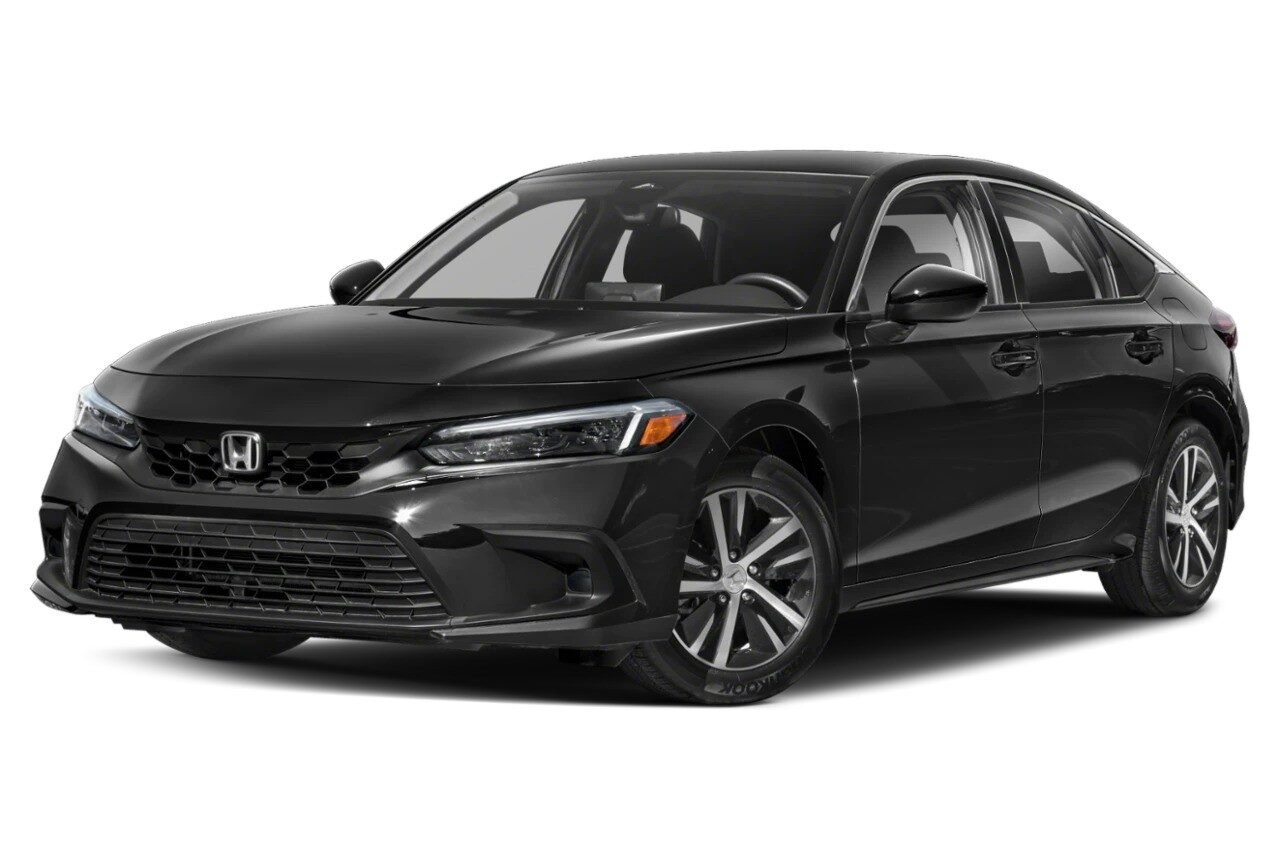Hatchbacks are a popular type of car that blend practicality, efficiency and style into one compact package. With their upward-lifting rear door that opens to the cargo area, hatchbacks can be more versatile than sedans while having a small-car feel.
You may actually see hatchbacks referred to as sedans, but technically they aren’t the same. Both are passenger cars, but sedans are defined as having a trunk compartment that is separate from the passenger area. Hatchbacks have a “two-box” structure, with the trunk area connected to the passenger area. Still, there is blurring of the lines between the two.
The popular Honda Civic comes in a hatchback style as well.
What are the pros and cons of a hatchback?
Weighing the strengths and weaknesses of owning and driving a hatchback can help you decide if it’s the right car for you. While hatchbacks are functional and efficient, they aren’t necessarily the perfect choice for every driver.
Hatchback pros
-
Storage space: One of the standout features of a hatchback is its flexible cargo space. Unlike sedans with their separate trunk, a hatchback’s rear seats are made to fold down to significantly expand storage and cargo space. This area is also easily accessible from inside the cabin. This makes hatchbacks an excellent choice for people who need to transport items like luggage, sports gear or even small furniture.
-
Compact size: Hatchbacks are small and maneuverable, making them ideal for city driving. They’re easier for drivers to navigate through heavy traffic or tight parking spaces.
-
Fuel efficiency: Many hatchbacks have excellent fuel economy. They’re usually lighter and more aerodynamic than SUVs or larger cars, so they provide savings at the gas pump — especially for those who commute or regularly drive long distances. You’ll also find a variety of electric and hybrid hatchbacks.
-
Affordability: Hatchbacks tend to be more budget-friendly when compared to SUVs or trucks. Many have a lower starting price point, and maintenance and repair costs tend to be lower when compared to larger vehicles.
Hatchback cons
-
Limited passenger space: While hatchbacks maximize cargo space, they often sacrifice rear-seat comfort. Taller passengers might feel cramped due to the hatchback’s smaller overall size. Sedans tend to have more passenger space than a hatchback.
-
Not ideal for rough road conditions: Hatchbacks are designed primarily for city and highway driving. They lack the ground clearance to handle rough roads or deep snow well. And they’re definitely not for off-road adventures, so outdoor enthusiasts might be better off with an SUV or truck.
-
Towing capacity: Unlike larger SUVs or trucks, hatchbacks aren’t built to handle heavy trailers or boats. If you have a need to tow large items, a truck or SUV would be a better option.
-
Limited status appeal: This might not be a negative to you, but hatchbacks tend to prioritize practicality over luxury. While some models are sporty and stylish, they may not compete with the status appeal of high-end sedans or SUVs.
What are some popular hatchback cars?
Hatchbacks are available from nearly every major car manufacturer, so there are plenty of options to choose from. Here are some popular models:
-
Honda Civic: Known for its reliability and fuel efficiency, the Honda Civic hatchback has a sleek design combined with impressive cargo space. It’s an excellent choice for commuters and small families. The 2025 model is available as a hybrid with an EPA-estimated combined city/highway rating of up to 48 mpg.
-
Toyota Corolla: This hatchback has a fun, sporty look paired with an impressive list of standard advanced driver aids and safety features. It’s a good choice for drivers who want style without sacrificing practicality and safety. It also has excellent fuel efficiency, with an EPA-estimated combined rating of up to 35 mpg.
-
Mazda3 Hatchback: The Mazda3 offers a sleek design and a premium feel on the inside and out. It’s smaller on the inside than other compact cars, and its fuel efficiency is average, but it scores points for driveability with available AWD and the option of a turbocharged engine.
-
Toyota Prius: The Toyota Prius hatchback combines a sleek design with hybrid technology and exceptional fuel efficiency — EPA-estimated up to 57 mpg for combined city/highway driving. Its roomy interior, advanced safety features and eco-friendly performance make it a practical choice for commuters and sustainability-focused drivers.
Is a hatchback the best option for you?
To decide if a hatchback is right for you, consider your lifestyle and priorities. A hatchback could be the perfect choice if you value fuel efficiency, need extra cargo space and frequently navigate city streets. It’s an appealing option for young professionals, students or small families who need a practical yet stylish vehicle. However, if your priorities include off-road capabilities, more passenger space or towing power, you might find an SUV or truck is better suited to your needs.

